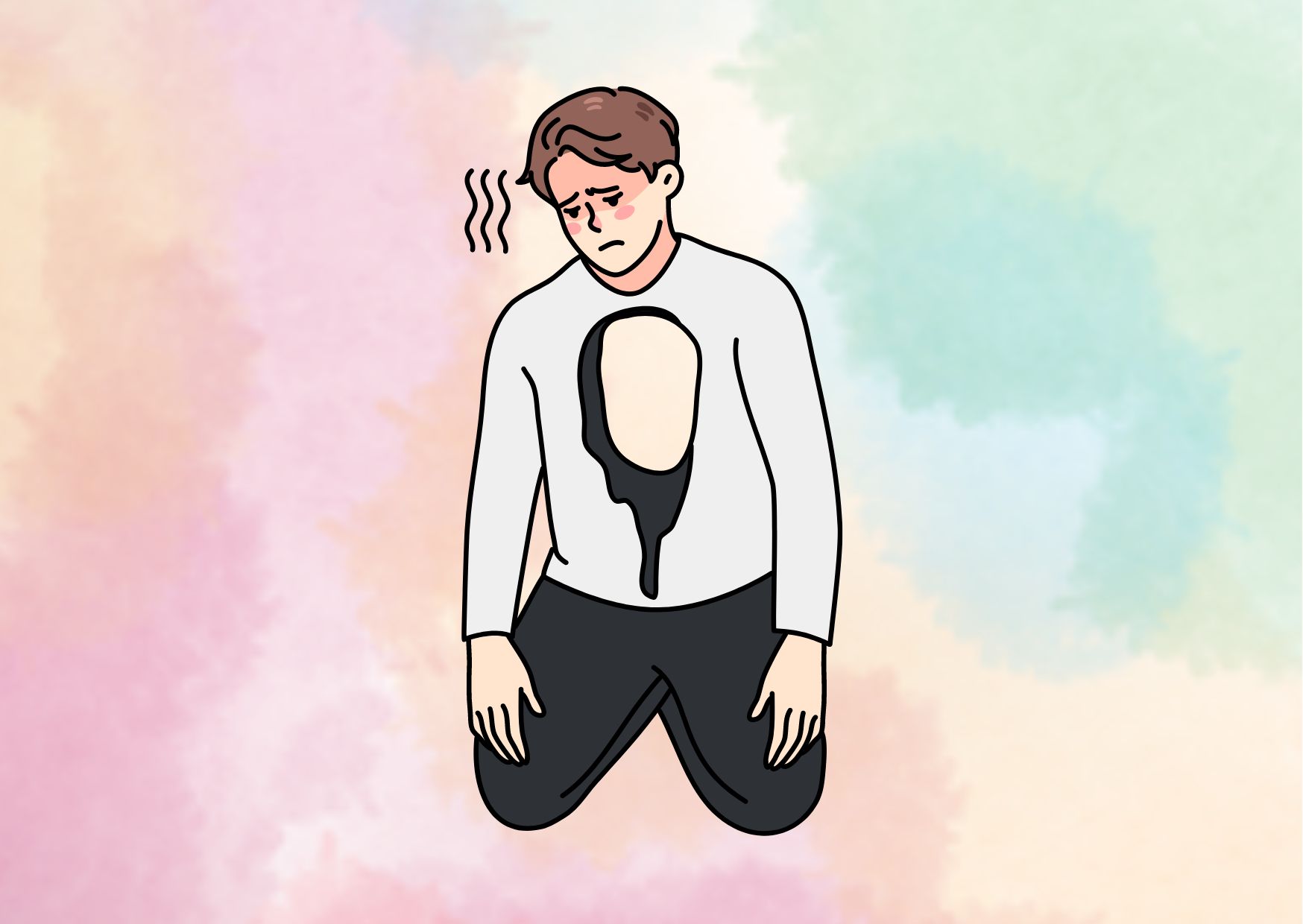Loss of Self-Confidence
Being cheated on can deeply impact an individual’s self-esteem and self-worth. They may question their attractiveness, desirability, and value as a partner. The betrayal can leave them feeling inadequate, unlovable, and unworthy of love and commitment.
Self-Blame and Guilt
It is common for individuals who have been cheated on to internalize the blame for their partner’s infidelity. They may question what they could have done differently or blame themselves for not meeting their partner’s needs. This self-blame and guilt can further erode their self-esteem and contribute to feelings of shame and inadequacy.
Trust Issues
Infidelity shatters the foundation of trust in a relationship. The individual who has been betrayed may struggle to trust themselves and others, including future partners. This can lead to difficulties in forming new relationships and a heightened sense of suspicion and skepticism.
Anxiety and Depression
The psychological effects of infidelity can manifest as anxiety and depression. The individual may experience intrusive thoughts, constant worry, difficulty concentrating, changes in appetite and sleep patterns, and a general sense of hopelessness and sadness.
Post-Traumatic Stress Disorder (PTSD)
In some cases, infidelity can trigger symptoms of post-traumatic stress disorder (PTSD). Individuals may experience flashbacks, nightmares, and intense emotional and physical reactions when reminded of the betrayal. PTSD resulting from infidelity requires professional intervention and support.
Suggestion for read: Emotional Cheating
The Psychological Effects of Infidelity on Relationships
Erosion of Trust
Infidelity erodes the trust that is essential for a healthy and thriving relationship. Once trust is broken, it becomes challenging to rebuild and restore the sense of security and reliability that underpins a strong partnership.
Communication Breakdown
The discovery of infidelity often leads to a breakdown in communication between partners. The betrayed individual may struggle to express their emotions and concerns, fearing further rejection or betrayal. The cheater may feel guilt and shame, making it difficult for them to engage in open and honest dialogue.
Intimacy Issues
Infidelity can significantly impact the intimacy within a relationship. The betrayed individual may struggle to be vulnerable and may erect emotional walls to protect themselves from further pain. The cheater may experience guilt and shame, making it challenging to engage in intimate and authentic connections.
Insecurity and Jealousy
Infidelity can breed insecurity and jealousy within a relationship. The betrayed individual may constantly question their partner’s fidelity, leading to feelings of insecurity and suspicion. The cheater may also experience heightened jealousy and possessiveness as a result of their own guilt and fear of being cheated on.
Relationship Dissatisfaction
The psychological effects of infidelity can lead to overall dissatisfaction within the relationship. Both individuals may feel unfulfilled, disconnected, and disillusioned. Resentment and bitterness may build, further straining the partnership.
Fear of Future Infidelity
The experience of infidelity can instill a deep fear of future betrayal. Both individuals may carry this fear into future relationships, hindering their ability to fully trust and commit to a new partner.
Coping Strategies for Individuals
Coping with the psychological effects of infidelity can be a challenging and deeply personal journey. Here are some strategies that individuals can employ to navigate the healing process:
Seeking Support from Friends and Family
Reaching out to trusted friends and family members can provide a valuable source of emotional support during this difficult time. Sharing one’s feelings, fears, and concerns with loved ones can help in processing emotions and gaining perspective.
Therapy and Counseling
Professional therapy and counseling can be instrumental in healing from the psychological effects of infidelity. Individual therapy can provide a safe space to explore emotions, develop coping strategies, and rebuild self-esteem. Couples therapy can help partners navigate the effects of infidelity, rebuild trust, and improve communication and intimacy.
Self-Care and Self-Compassion
Engaging in self-care activities and practicing self-compassion is crucial during the healing process. This can involve engaging in activities that bring joy and relaxation, such as exercise, meditation, journaling, or pursuing hobbies. Practicing self-compassion involves treating oneself with kindness and understanding, acknowledging that healing takes time and effort.
Setting Boundaries and Prioritizing Personal Needs
Establishing clear boundaries within the relationship is essential for rebuilding trust and maintaining emotional well-being. Individuals must prioritize their own needs and ensure that their boundaries are respected by their partner. This may involve renegotiating relationship agreements and establishing open and honest communication.
Building Self-Esteem and Self-Worth
Working on building self-esteem and self-worth is crucial in recovering from the psychological effects of infidelity. Engaging in activities that promote personal growth, seeking validation from within, and challenging negative self-beliefs can contribute to rebuilding a strong sense of self.
Rebuilding Trust and Healing Relationships
Rebuilding trust after infidelity is a challenging process that requires commitment and effort from both partners. Here are some strategies that can contribute to healing relationships:
Open and Honest Communication
Effective communication is essential in rebuilding trust and addressing the emotional effects of infidelity. Partners must be willing to listen, express their feelings, and work together to rebuild understanding and connection.
Couples Counseling
Couples counseling can provide a supportive and structured environment for partners to process their emotions, improve communication, and rebuild trust. A skilled therapist can guide the couple through the healing process and facilitate productive dialogue.
Reestablishing Intimacy
Rebuilding intimacy after infidelity requires patience, understanding, and mutual effort. Partners must be willing to explore and address the emotional and physical aspects of intimacy, working together to rebuild connection and trust.
Forgiveness and Reconciliation
Forgiveness is a personal and complex process that may or may not be achievable in every situation. It involves letting go of resentment and choosing to move forward with the relationship. Reconciliation requires both partners to be committed to rebuilding trust and fostering a healthy partnership.
Creating a New Relationship Dynamic
Rebuilding a relationship after infidelity often involves creating a new dynamic that incorporates lessons learned from the experience. Partners must be willing to establish new boundaries, communicate openly, and prioritize trust and commitment.
Suggestion for read: How to Catch a Cheater
The Role of Psychotherapy in Healing from Cheating
Psychotherapy plays a crucial role in helping individuals and couples heal from the psychological effects of cheating. Here are some therapeutic approaches that can be effective:
Individual Therapy
Individual therapy provides a safe and confidential space for individuals to explore their emotions, process trauma, and develop coping strategies. Therapists can help clients navigate feelings of betrayal, rebuild self-esteem, and address any underlying issues that may have contributed to the infidelity.
Couples Therapy
Couples therapy focuses on improving communication, rebuilding trust, and addressing the emotional effects of infidelity. Skilled therapists can guide partners through difficult conversations, facilitate understanding and empathy, and help the couple develop strategies for healing and growth.

